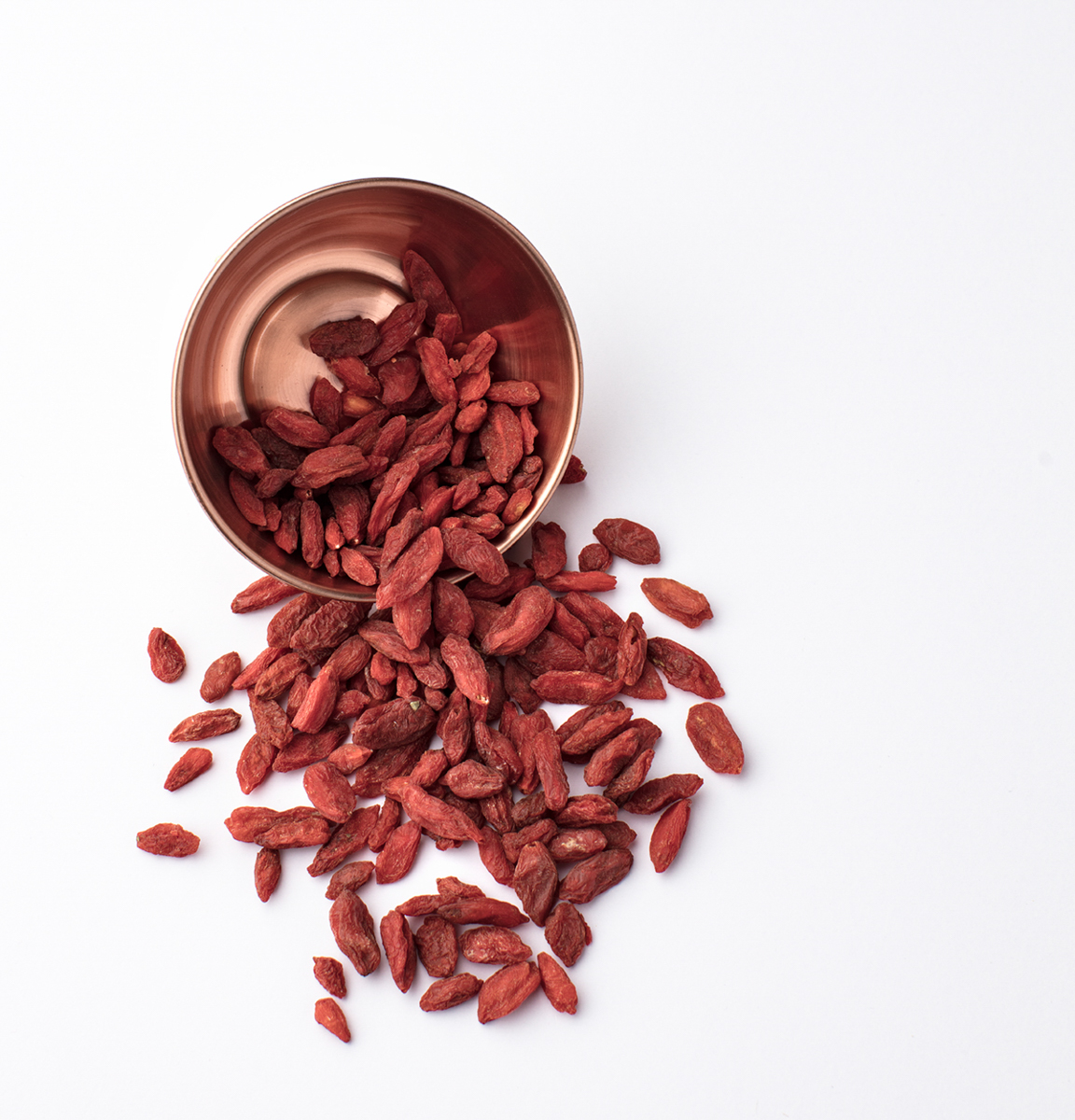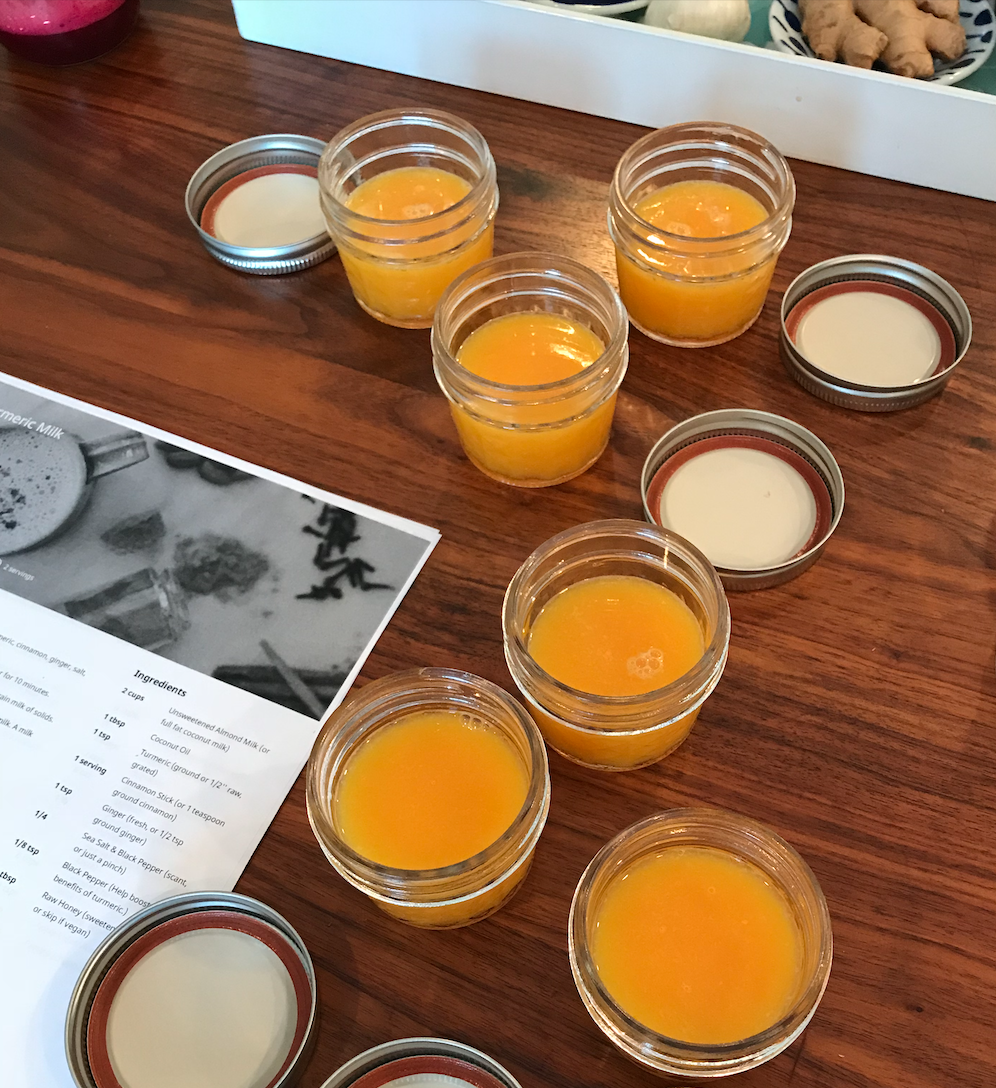Confused about the differences between a food allergy, food sensitivity, or food intolerance? Today I’m breaking it all down for you, so you understand how each one affects your body. Some are easier to diagnose than others, which can lead to confusion when your doctor says everything is “normal.”
Posts
Are your runny noses, flushed face, or headache from a histamine intolerance? Learn the causes of HIT, symptoms, and low and high histamine foods.
I want to take some time to talk about intermittent fasting. I get a lot of questions about this trend from both clients and friends. I have tested it out myself, and I’ll share with you today a little of the science behind intermittent fasting, but also my personal experience.

What is Intermittent Fasting?
Intermittent fasting is based on a cycle of eating rather than a specific dietary plan. What we’re talking about is eating within a certain window. And we call that time-restricted eating.
Now, this is not for everyone. From the beginning, I will say that time-restricted eating is not for women who struggle or have struggled with disordered eating. I am very sensitive to this, both with clients and having been through an eating disorder myself. I recognize that when we use the term restricted in any way when it comes to your diet, many emotions can come up. Honor those, and understand this is not about what to eat and more about when to eat.
What are the Benefits of Intermittent Fasting?
Intermittent fasting (IF) gives your body a chance to fully digest your food and keep your blood sugar stable, leading to happier hormones. That’s the basic idea behind it.
IF can be a great way to restore normal appetite, so you actually start to crave nourishing foods. This can help lead to glowing skin, mental focus, and the energy you need to accomplish your goals. By avoiding the ups and downs of blood sugar imbalances, your hunger hormones start to work the way they are supposed to. The goal of intermittent fasting is to really help fix any metabolic damage that may exist in your body or has been caused since gaining extra weight.
Intermittent fasting may help support your immune system as well. It can help upregulate proteins that also protect our DNA and prevent cancer. There’s also been a study showing if intermittent fasting can lower white blood cells, which triggers our body to make new white blood cells that are a key part of our immune system. If there’s ever been a time to pay attention to the health of your immune system. This year is it.
Intermittent Fasting Eating Windows
There are two different ratios you will see when people talk about IF. There is the 16:8 eating window, or a 5:2. The 16:8 window is the most common. It means you have eight hours of an eating window and 16 hours of fasting. For example, you would be eating from 10 am-6 pm, and not eating after 6 pm till breakfast time.

The 5:2 cycle is eating a regular healthy diet 5 days a week and practicing IF on two days.
You “break your fast” with breakfast at a later time in the morning than what you may be used to. What you’ve done is given your body ample time to digest your meals from the day before fully.
Side note: Breakfast is actually the worst time of day for starchy carbs and sugar because it spikes your insulin. Your body’s cortisol hormone is at its highest, and insulin and cortisol have opposite effects. Cortisol is about burning fat and energizing, whereas insulin is about building fat and making you sleepy and tired. You really want to focus on having a high-quality protein and fat-rich breakfast that will nourish you and sustain you till the next meal. Interesting, right?
How Intermittent Fasting Stops Snacking.
The key is learning how to eat meals to prevent unhealthy hunger and ditching the snack trap. Intermittent Fasting is very good at helping to reduce snacking, especially at night. Many women struggle with eating snacks, typically after dinner, or enjoying caloric beverages late into the night.
Intermittent fasting doesn’t work if you are still eating the wrong things. If you’ve been eating an unhealthy diet, you need to switch your diet first before trying intermittent fasting.

Can I drink during my fasting window?
The eating window applies to both food and beverages, to a point. If you stop eating at 7 pm, that also means you are not having a glass of wine at 8 pm. (yes, even your clean-crafted wine.) You can, however, enjoy herbal tea, hot water with some essential oils, or seltzer. Those are all perfectly acceptable to hydrate, with no calories.
In the morning, you can have tea or coffee. There is mixed opinion on whether or not you are still in a “fast” if you doctor up your coffee with collagen and MCT oil. I’ve read often that if you keep the coffee add-ins to less than 50 calories, you are still in “fast” mode. In truth, to get the best benefits, wait on your coffee for a bit if you want to add anything to it (yes, almond milk included.)
Do I have to do Intermittent Fasting every day?
You can practice intermittent fasting on and off during the week and see benefits; it doesn’t have to be an everyday thing. Some people get into a routine and feel great with IF, so they practice it more often than they do not. It’s up to you to do some trial and error. The 5:2 IF ratio is about the 5 days of regular eating and 2 days of IF. These two days don’t need to be right in a row either.
Additional Intermittent Fasting Resources
Several people focus on intermittent fasting and can offer more resources to you.
Amy MD focuses on circadian fasting. Her review of the body’s natural tendency to sync with the sun rising and the sun setting and timing our meals to this natural cycle is explained with circadian fasting. I really enjoyed her take on IF and how to implement it with women’s menstrual cycles.
Jenn Pike did a great podcast cast episode via The Simplicity Sessions about intermittent fasting. She explains in detail how intermittent fasting lets your liver do its job more efficiently. She also recognizes that intermittent fasting is not necessarily for everyone, and especially not for all women.
Another view I appreciated is from Jessica Ash, who has an objection to intermittent fasting. I think it’s important to look at both sides of the argument to recognize that one dietary trend is not a solution for everyone. I think she makes great points about why it’s important to focus on nutrition first and foremost.
You can’t share IF resources without naming Dr. Jason Fung. He has written extensively about the benefits of intermittent fasting, and you can find a number of his books here.
My take on Intermittent Fasting
I hope this article about intermittent fasting lets you decide if you want to test it out for yourself. I’ve tried it and find that it has allowed me to become more cognizant of when I’m hungry and when I’m not. Instead of eating breakfast straight away in the morning, I wait a bit to actually feel hunger. This took time and some trial and error. (and I do love my 1/2 caf coffee in the morning, too, with a little almond milk and MCT oil.) Again, it’s not necessarily for everyone, just like any dietary trend. You can join the conversation about intermittent fasting over in my private FB group here.
If you want to learn more about your own health care, please book a free health evaluation. We offer webcam/virtual consultations for people across the country and around the world.

Thank you for sharing!
Learn how to making cooking with kids in the kitchen more fun every day. Engage their senses, teaching them how to chop, and make them meal planners.
My top 5 supplements for immune support have been a part of my healthy foundation for years. I’ve never been so grateful for having a plan to stay healthy, in any season. During cold and flu season, we need to do everything possible to keep ourselves feeling our best to better fight any signs of infection. Today I’m giving you a peek inside my medicine cabinet.
If you have ever glazed over with decision fatigue in the supplement aisle or while researching about what supplements to take then you are not alone. We have limited daily capacity and energy to make decisions. Based on the research, it is easier to decide if you have limited choices, in the morning, and after you’ve eaten a healthy breakfast.

My Favorite Immune Supporting Supplements
I can help you by limiting your options based on my extensive research and experience in the field of culinary nutrition. So, no falling victim to overwhelm here, I’m going to help you outsmart it.
Before we dive in I want to remind you that supplements can’t make up for poor health habits and I recommend 5 super simple ways to boost your immune system as your foundation. Please, start with the basics and you will have an easier time deciding which supplements are vital to your unique body and lifestyle.
Starting with a food-based multivitamin and multimineral is one of the easiest and simplest ways to get what your body needs. But, if you need extra during times of illness then supplementing is a great option. Here’s what I suggest – vitamin D3 (actually a hormone), vitamin C, zinc, and magnesium.

Vitamin D3
Let’s talk about the number 1 most important supplement first – the sunshine hormone! Did you even know that vitamin D3 is technically a hormone?! Ideally, we are designed to make enough D3 through sun exposure. But, in the winter months in the Northern Hemisphere it is hard to get enough, and supplementing is often necessary; especially since a vitamin D3 deficiency results in a suppressed immune response as well as issues with low mood.
I live in the North East where it is easy to get low in vitamin D3 over the winter, so I turn to supplements to feel my best and avoid getting sick. I am not alone either, it turns out that about 40% of the population is deficient in vitamin D3 and two of the biggest signs that you are low in D3 is if you are prone to catching colds more often or if your mood gets low in the winter months. Neither of which are fun to deal with.
Since our bodies make vitamin D3 via sun exposure, the best way to get your levels up is to increase your sun exposure to 30 minutes twice a week. Of course, with all the sunscreen we wear in the warmer months, this can get tricky. You can also get your levels up to optimal by incorporating vitamin D3 rich foods such as cod liver oil, fatty fish, and eggs into your diet and by supplementing when needed.
As always, I advocate for meeting nutritional needs naturally as much as possible but if you suspect you need a supplement to boost your D3 levels then it is recommended to get your blood levels checked so you can dose properly. If you aren’t able to get a blood test right away you can certainly follow the current RDA for vitamin D which is 600 IU for children and adults 1-70 years.
Some functional medical doctors suggest much higher doses or around 2,000 IUs a day, which still falls below the suggested upper limit of 4,000 IUs. If you are going to take a dose beyond the RDA, I suggest you work with your doctor to determine the safest dosage as there can be negative side effects from too high of a dose including digestive pain, nausea, increased thirst, and kidney stones.
One last note on this important supplement, it’s easy to absorb in liquid form. This is the Vitamin D + K2 that I use myself daily.

Vitamin C
Next up is another key vitamin for immune health – Vitamin C. It’s an antioxidant superstar and sweeps up free radicals that damage cells and it also supports the production and function of white blood cells. It’s known to reduce symptoms and shorten the duration of the common cold and viral pneumonia-related hospital stays. I will raise a mug of warm lemon water to that!
There are so many ways to get vitamin C via food and I always suggest you start with diet. Check on my top foods to fight the cold and flu to learn which ones we add into our diet when we get a hint of the sniffles.
But sometimes we need a boost, especially if we are deficient in vitamin C or facing illness. In that case, it’s helpful to supplement. The current RDA for vitamin C is 75mg for adult women and 90mg for adult men. Higher doses have been used in hospital settings and by functional medical doctors with great success as well, but if you are not fighting a viral infection that is endangering your life then megadosing is not necessary.
Zinc
Have you ever tried slamming zinc lozenges when you get a cold to minimize the duration? You aren’t the only one; it’s commonly known that zinc is supportive of immune health. But, did you know that you need this metal daily for your body to function optimally? Zinc deficiency is really common, especially if you eat a plant-based diet.
Ideally, you will get your zinc from your diet and the best food sources of zinc are lamb, grass-fed beef, chickpeas, pumpkin seeds, chicken, eggs, mushrooms, salmon and cacao powder. The last one makes me happy! Anyone else want to eat dark chocolate and drink hot cacao to help ward off colds?! Sign me up.
Now, if you are deficient despite eating a zinc-rich diet then supplementing is a wonderful way to get this vital metal. The RDA for zinc is 11 milligrams/day for men and 8 milligrams/day for women. In times of illness up to 20mg of zinc, a day is recommended to support the immune system. Men especially tend to be low in zinc, and it can affect their fertility as well.

Magnesium
I call this the “mom” vitamin. If there’s isn’t enough magnesium, nothing works great. Remember it this way, if mama isn’t happy, no one is happy. Magnesium is a mineral and electrolyte that many of us don’t associate with the immune system but it plays a key role in over 300 biochemical processes in the body.
A magnesium deficiency is associated with inflammation and apoptosis (cell death), neither of which are good for the immune system. And, as we age a magnesium deficiency is often associated with an increase in susceptibility to viruses.
A delightful way to increase magnesium levels is to take frequent Epsom salt baths before going to bed. While this method is luxurious it still may not be enough to fix a deficiency. In that case, you need to supplement using the RDA of 420 milligrams for men and 320 milligrams for women. There’s a lot of different kinds of magnesium and I share resources with my clients about which types are the best match with their symptoms or diagnosis.

Ongoing Immune Support
I hope you’ve made it through without getting that dreaded feeling of overwhelm and decision fatigue. The world of supplements can be truly hard to navigate. It helps to remember that building a strong and intelligent immune system begins with diet and lifestyle. And, if you suspect you are deficient in vitamin D3, C, zinc, or magnesium then you can always get a blood test that reveals your levels and then work with your doctor to pinpoint exactly what works best for your body.
What I want you to be most aware of is that deficiencies in vitamin D3, zinc, and magnesium are very common and you need optimal levels to have a thriving immune system…and body in general. So, if your daily multivitamin/multimineral doesn’t cover the RDA values and you are getting sick often and just not feeling your best then it is time to investigate further.

*This info is for educational purposes only. Please work with your own functional medicine provider to determine the best supplement plan for your own individual needs.
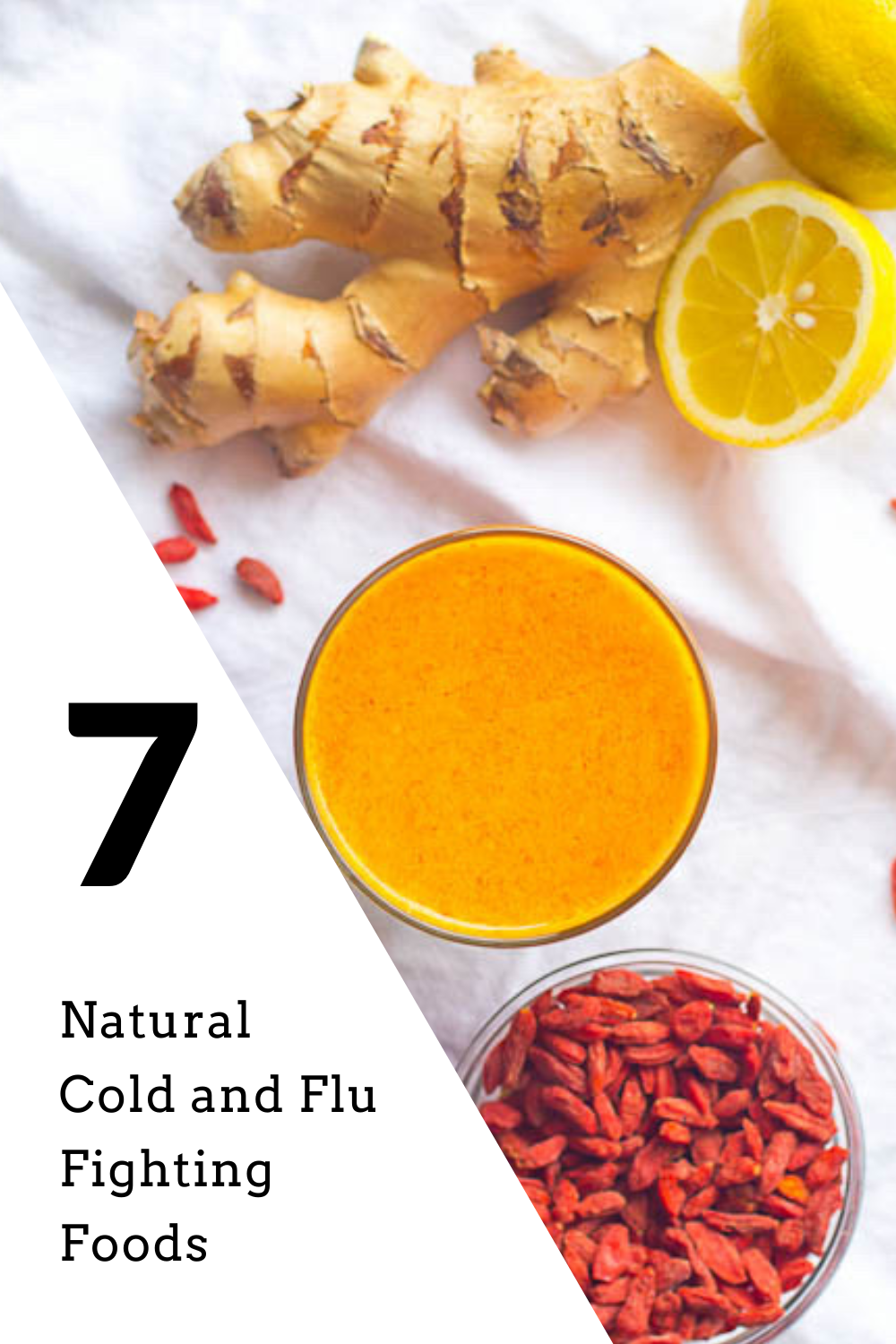
Now more than ever, it’s important to learn these natural cold and flu-fighting foods to help support your health. While I take care of my immune system year-round through diet and lifestyle, when my kids get sick or I feel a tickle in my throat I often turn to a few key foods for extra support.
“Let food be thy medicine and medicine be thy food.”
Isn’t it wonderful that we can eat our way into better health? We can even strengthen our immune system while enjoying delicious plant-based foods and beverages. I love that!
Immune-boosting foods
Do you know why a particular food supports the immune system? The simplified version is that foods high in antioxidants, like vitamin C, E, and A help because they reduce free radical damage which can damage all cells in the body, including all of the cells used by the immune system. So, the key is to reduce the damage so the immune system can work at full capacity.
Since there are a lot of natural cold and flu-fighting foods that support the immune system, I find it is best to pick the foods that have antioxidant power AND that I like the taste of. That way I am excited to take my “medicine”. If you missed the first post in this series about boosting your immune health, make sure you read 5 Ways to Boost Your Immune System.
Now for the fun part, I am going to share with you my absolute favorite antioxidant foods because they taste amazing to me, they are cost-effective and they are SIMPLE. I hope you find one that gets you into the kitchen to discover the healing benefits of plants.
Here are the antioxidant superstars that I prefer!
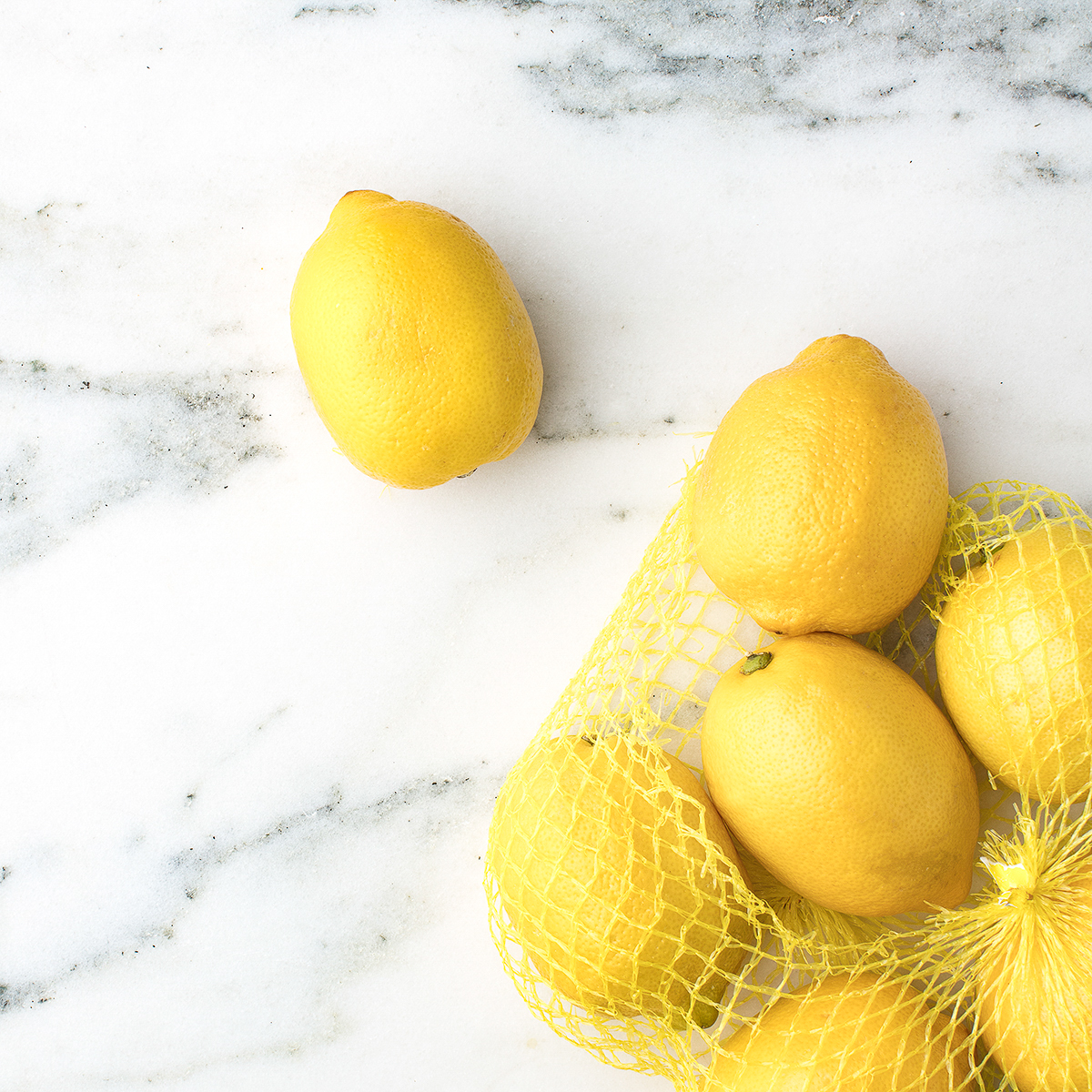
Lemon
Lemon is packed with vitamin C and delivers around 90% of the recommended daily value – it’s like taking a supplement. That is so impressive to me. My favorite way to enjoy lemon is sipping on a warm mug of lemon water to start my day- it is such a comfort. And an added bonus is that it preps your digestive system for breakfast. That’s a win-win. Also, you can drink it any time of the day of course, and I find that adding a few slices in my water bottle is a delightful way to get even more Vitamin C in.
Goji Berries
Goji berries are also antioxidant superstars and have been an important part of Chinese medicine for 5,000 years for good reason. They are rich in antioxidant vitamins C and E as well as B vitamins. Not only do I love that they taste great and support my immune system but they are known to be great for skin health and anti-aging. Just another reason to give them a try.
I like to add these to my oatmeal or to a smoothie. I also like to make tea by adding a 1/4 cup of berries to one cup of boiling water. Let it steep for at least 5 minutes and drink the tea hot or chill to make iced-tea. Once the tea is brewed you can eat the plumped up berries…which are also a complete protein source! These are the goji berries in my pantry.
Ginger
I bet you have heard about how anti-inflammatory ginger is. That is because of its high antioxidant levels. Antioxidants reduce inflammation because they reduce damage. Ginger also improves circulation and soothes the digestive tract, so it is extra supportive if you have any tummy trouble.
My favorite way to enjoy ginger is making tea, noticing a theme yet? I like warm, cozy drinks! I drink a mug at least once a day, or more if I am already under the weather. My kids like it too….with a spoonful of raw honey.
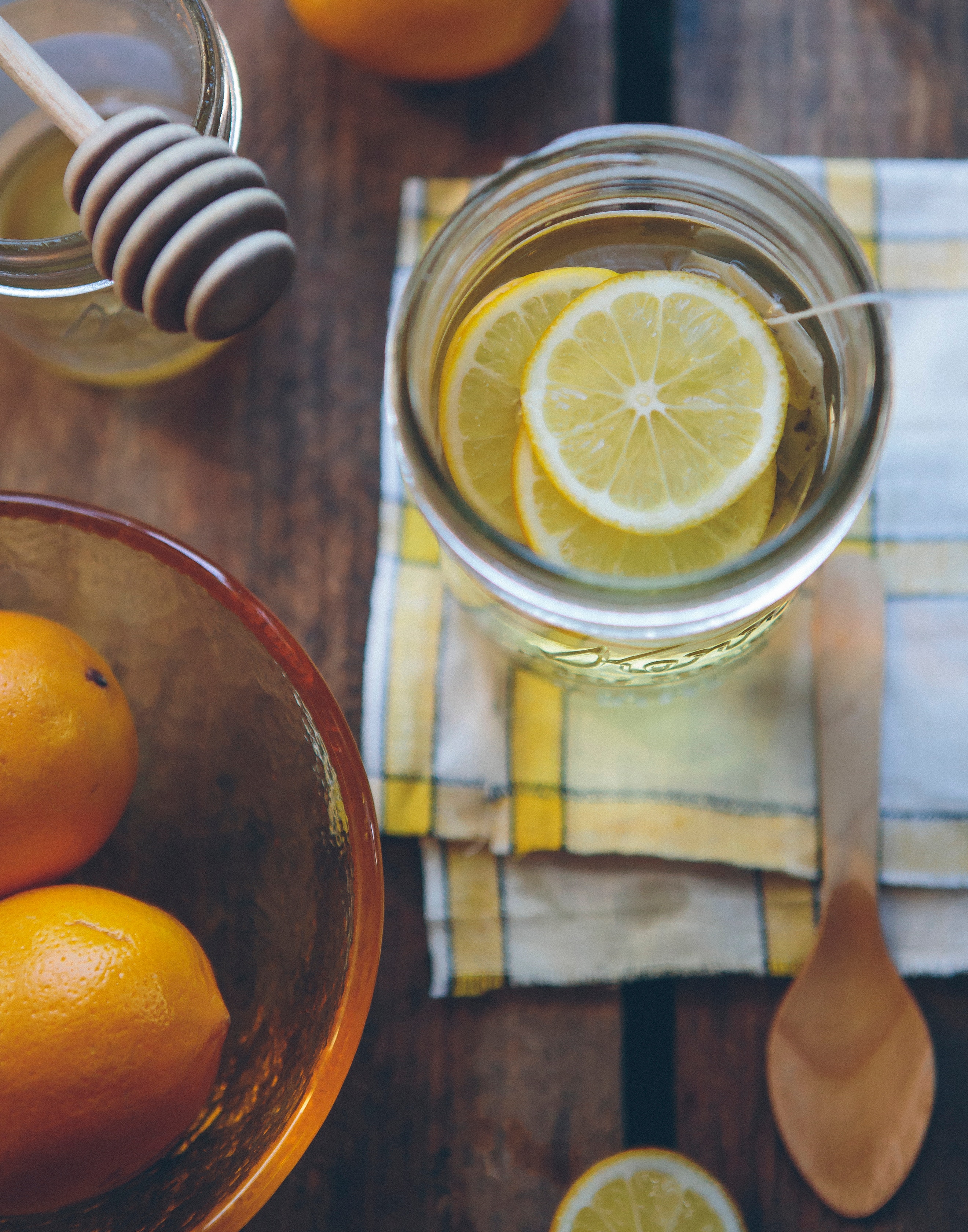
Here’s how to make it:
Cut off 2” of ginger and slice into flat slivers.
Add 2 cups of filtered water in a saucepot, plus a cinnamon stick.
Bring to a simmer for 15 minutes.
Strain, add in the juice of half a lemon. Sweeten with a little raw honey if needed.
Turmeric
Have you heard of golden milk? Its key ingredient is another anti-inflammatory super root –turmeric. Like ginger, its immune-boosting ability lies in its high antioxidant levels. When you consume it fresh you will want to add a little black pepper to help activate it….don’t worry, you can’t really taste it!
In addition to being one of the best natural cold and flu-fighting foods, turmeric also has anti-cancer properties. It has the cancer-fighting compound curcumin, which has all those anti-inflammatory and antibacterial benefits.
Medicinal Mushrooms
Did you know that mushrooms are cancer-fighting superfoods? They are well documented to slow tumor growth and support the immune system in all of its functions. Even white button mushrooms are beneficial. But for an extra boost give some of the medicinal mushrooms, which have been in use since 3,000BCE, a try:
- Chaga
- Cordyceps
- Lion’s Mane
- Maitake
- Oyster
- Reishi
- Shiitake
- Turkey Tail
Their anti-inflammatory properties make them another natural cold and flu-fighting food. One way I love to incorporate these mushrooms varieties is by drinking one of Four Sigmatic’s elixirs warmed up in my favorite mug.
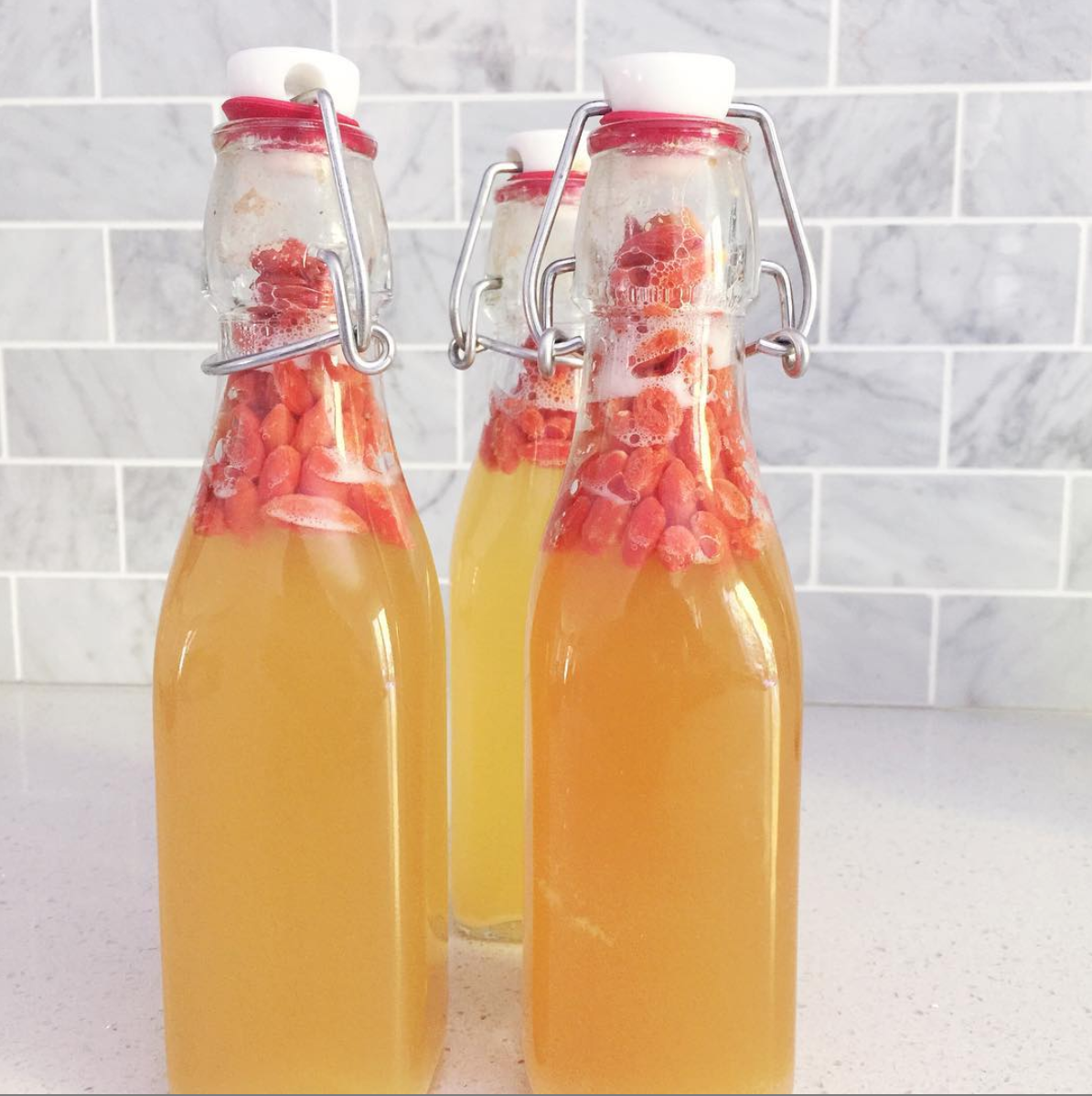
Kombucha
Kombucha is a fermented beverage that supports better gut health. That means it also supports your immune defense system! We make our own, but there are lots of good ones on the market. Look for ones low in sugar and be mindful of the serving size. I like to make a batch flavored with goji berries, and then I eat the berries for a natural energy boost!
This fizzy drink is full of probiotics, as the tea and sugar ferment, it creates a healthy bacteria that are good for the gut. Start with a simple one that is ginger or apple flavored. My kids love it too!

The best natural cold and flu fighter? Water.
Water isn’t full of antioxidants but hydration is essential for our bodies to function efficiently. Dehydration can compromise your immune system by reducing the volume of lymphatic fluid, which circulates white blood cells and cleans out toxins. Dehydration also leads to inflammation and any time we are inflamed the immune system is taxed since it is called on to do damage control.
Perhaps there is a reason I am drawn to hot beverages with medicinal foods…after all I think our bodies know what we need and hydration is vital, especially for healthy immune function. You can eat all the natural cold and flu-fighting foods, but if you are dehydrated, your body’s immune system will still be compromised.
Air
Not technically a food, but still so important. And here’s why.
Most of us don’t think about consuming air as we think about consuming liquids and foods, but we should. What comes in with our air affects our health and our immune system. When we breathe in toxins such as chemicals and mold, our bodies respond with inflammation which, over time, taxes the immune system.
I am a huge fan of filtering my indoor air and I personally use Air Doctor. It is SO quiet and I feel so much peace of mind knowing that their filter is certified to remove mold spores (100%), smoke, dust, cat and dog dander, virus, bacteria, and pollen; and the carbon filter will reduce many VOC’s such as formaldehyde as well as many other odor/odorless chemicals.
It feels so good to support the health of my family too. I may not be able to get my kids to drink mushroom tea so knowing that the air they are breathing in is free from toxins and pollutants makes me feel like a good mom. You can get your own Air Doctor Pro and save $300 automatically when shopping with me.

_____________________________________________________________________________________________________________________________________
Now, I know even a small list can be overwhelming, so I want to urge you to pick the ONE thing that caught your attention from my list of natural cold and flu-fighting foods. What feels exciting to try AND is doable? This resource will be here for you anytime you want to add another one in, so no rush. Try what feels good to you and let me know if you have any questions. I am here for you…with a warm mug of medicine cupped in my hands.
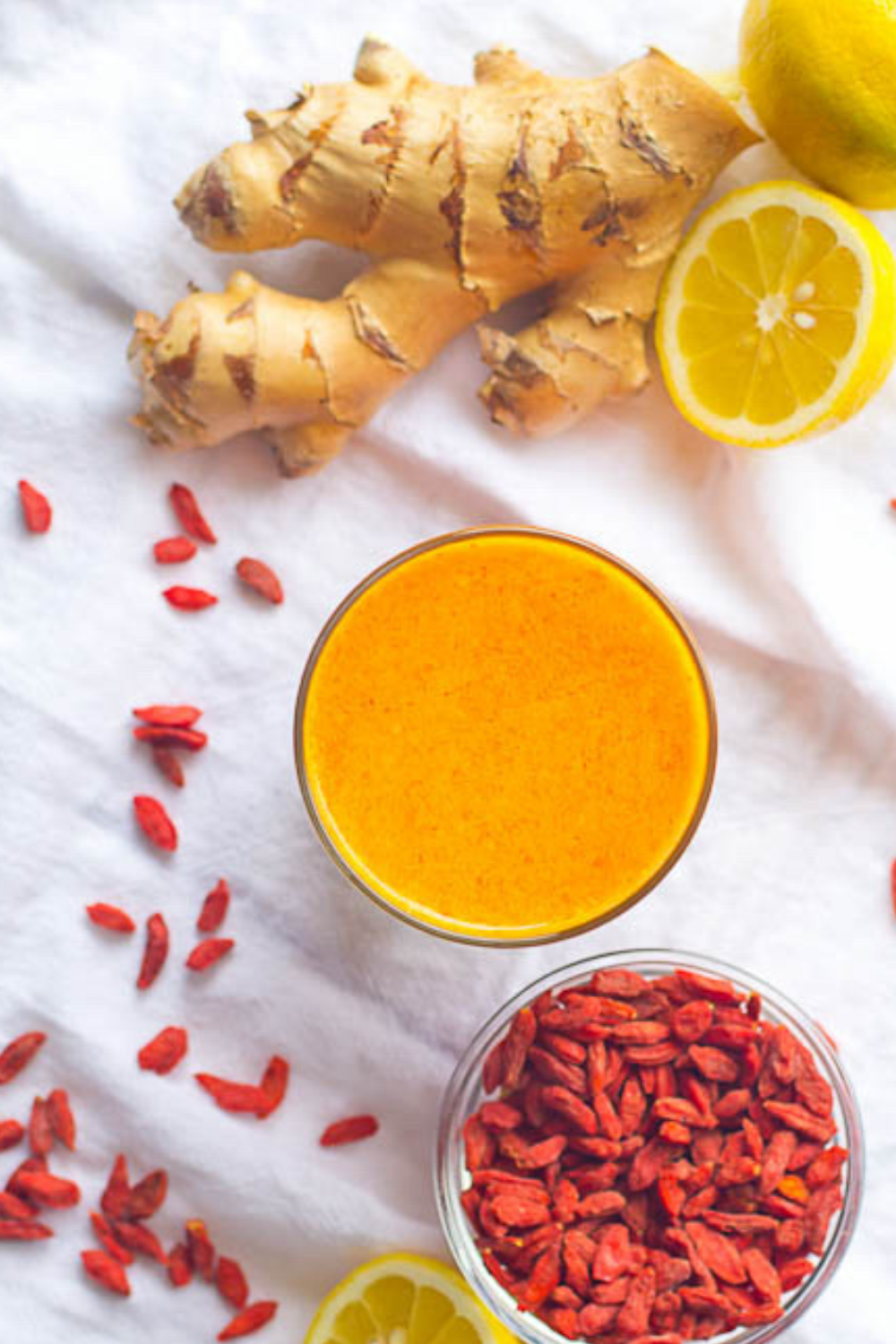
This post is sponsored by Babbleboxx

March is an extra special month as it’s National Nutrition Month AND my birthday. It’s a sign I tell you! You know my passion is to educate others about how to choose well when it comes to the food you buy for your family. There are so many choices available, and sometimes it’s easier to have someone else highlight a few new choices.
Action for Healthy Kids (AFHK)
I love learning about nonprofits that help support children’s nutrition. Getting kids outside and active is so important for their physical AND emotional health. Action for Healthy Kids is a nonprofit bringing together educators and families to create healthier schools and communities, supporting the physical and emotional health of children. Through their new Take Action for Healthy Kids campaign, the organization is encouraging parents and caregivers to take 200,000 actions for healthier kids in 2020, from participating in healthy programs at your school to taking steps as a family to improve nutrition, physical activity and well- being at home.

- One in three children is overweight, or obese, in our country.
- 76% of parents say they have improved their own habits based on something their child told them about health and well-being, which is another reason why it’s so important children learn about health and nutrition at school.
- Joining the movement at Commit to Take Action for Healthy Kids by March 31, 2020 and be entered to win a healthy taste test kit to host a fun and tasty nutrition education activity for students at your child’s school. (valued at $175) If you do one thing for National Nutrition month, sign up for your kid’s school to win.
Beetology Juice
Beets are incredibly beneficial for our body, but so messy to cook! This versatile veggie is packed with vitamins and minerals associated with lowering blood pressure, fighting inflammation, increased stamina, detoxification support, boosting immunity, and much more. For National Nutrition Month, you just can’t “beat beets.”

I love finding new ways to incorporate beets into my routine, just like in my Red Velvet Smoothie recipe. But sometimes, it’s even easier for a grab and go option that Beetology has created! Here are some of the benefits:
- 100% organic cold-pressed juice
- Real food ingredients, no preservatives or additives, no artificial colors or flavors
GOODTO GO Keto Snack Bars
One of the most common questions I get with my coaching clients is, “what’s the best snack bar?” I have to say it’s a personal choice…crunchy, soft, salty, sweet. What’s your favorite way to feel satisfied, and then we can find your perfect snack bar.

If you love a softer bar (kinda like a brownie!) then try the GOODTO GO snack bar. This bar is keto-friendly, and a quick way to eat something without a blood sugar spike. Swap out the bagel and grab a GOODTO GO snack bar. My favorite is the Mint Chocolate and anything chocolate.
- They contain low net carbs (3 grams/bar), just a hint of sugar (2 grams/bar) and a whopping 13 grams of healthy fats.
- Keto certified by the Paleo foundation
- Non-GMO project certified
Healthy Choice Power Dressings
Salads make our table most nights as I want our kids to be very familiar and comfortable with this simple, yet nourishing side dish. One way to keep things exciting is new dressings. Healthy Choice Power Dressings add delicious flavors to your salad while keeping it healthy. These Vegetable-Powered Dressings are made with real vegetables and no artificial flavors, or soy ingredients.
- Flavorful taste powered by a savory mix of herbs and spices
- Powerful ingredients without any artificial flavors
- 45 calories or less per serving (although you know I generally never look at calories)

Shipt
Shipt is a membership-based grocery marketplace, enabling the delivery of fresh foods and household essentials. You know I love delivery to help save time for meal planning. Shipt was new to meal and I am excited to have another resource to cut down on driving around to different stores.

I was able to order from Target and get it delivered SAME DAY. In light of current events, I focused on restocking my cleaning supplies and LOTS of hand soap. With Shipt, I also could order from my local grocery stores, PetCo, or CVS. (check your area to see what you can get delivered!)
- Shipt is the nation’s fastest-growing online grocery marketplace. They work with leading retailers and local stores to deliver groceries via a community of shoppers and a convenient app.
- Since its founding in 2014, Shipt has been rapidly expanding and now offers quality, personalized grocery delivery to tens of millions of households across the United States.
Dessert Hummus from Tribe Hummus
When I first shared my own recipe for chocolate hummus, no one believed there were chickpeas in there! Hummus is one of the best ways to boost your fiber and protein intake. If you are short on time, you have to try the Tribe Dessert Hummus. Plus it’s easy to pack in your kid’s lunch box too for a quick snack.
- Each flavor has only 5g of sugar per serving
- No artificial preservatives
- Free from all major all allergens, including dairy
- Non-GMO Project verified, Vegan, Gluten-Free, kosher.

My favorite way to serve the dessert hummus is with apple slices. It’s the perfect pair, and apples are another way to get more fiber into our diet. You can also try it with bananas or celery too. Find out if your local store carries Tribe Dessert Hummus.

You have the power to stay healthy through the cold, flu and coronavirus season by paying a little more attention to HOW you are eating, drinking, sleeping, managing stress, and caring for your skin and house. You can boost your immune system with these simple practices, and share these ideas with your loved ones.
It’s time to share the best dairy free products I use the most in my kitchen. Making the switch to a dairy free lifestyle can feel overwhelming at first, but I’m here to make it easier. These non dairy swaps are easy to add to your own kitchen, and help make the transition easier.
When I recently read the ingredients of a particular children’s protein shake, I realized I had to share a healthy alternative to PediaSure®. A milkshake that’s marketed to parents as a healthy drink but is filled with sugar, oxidized oils, and synthetic vitamins is certainly not what I would give to my own kids. As a liquid meal replacement, there are much better options.
Free Meal Plan
Sitemap
SEARCH


